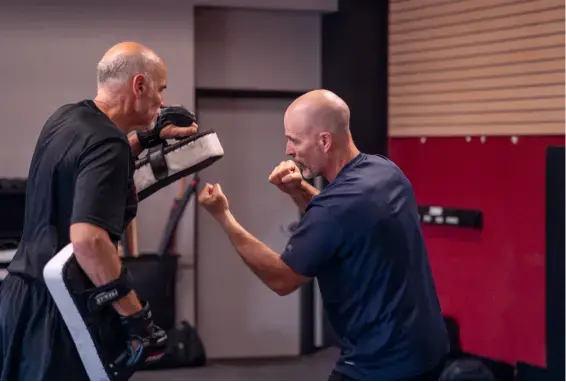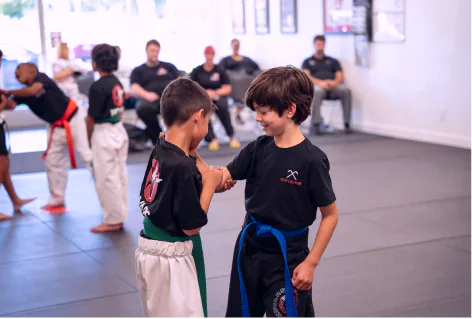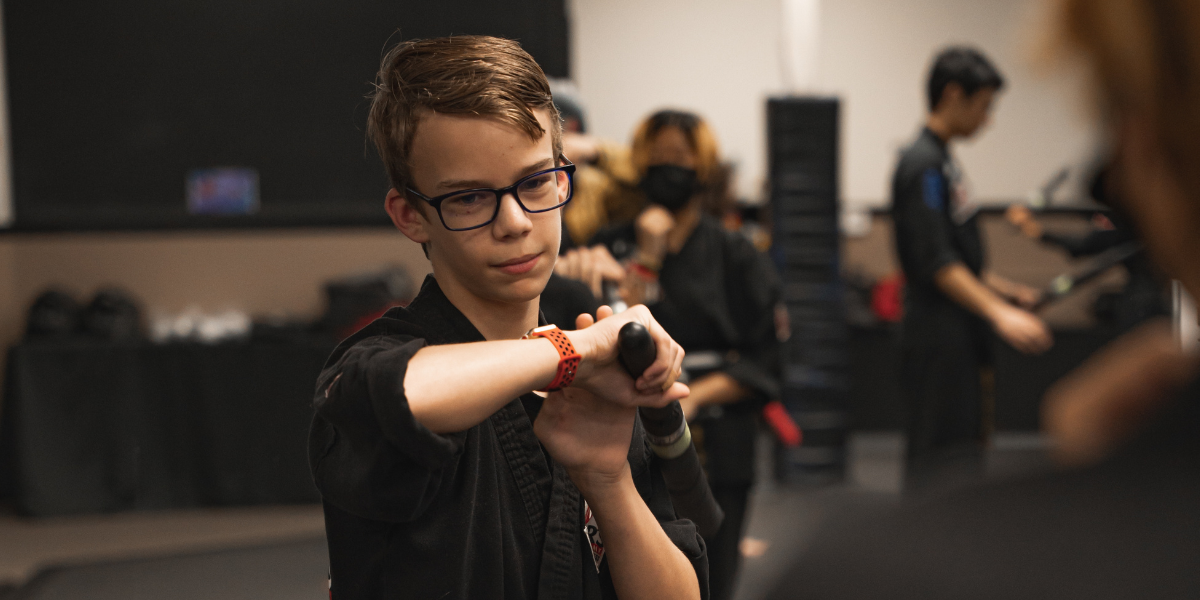Fighting Back Works
Many times when people think of martial arts they think they need to be a black belt to know what to do in a dangerous situation, well that's not true.

Many people believe they need to be a black belt to defend themselves in dangerous situations, but that’s not true. Practicing a few targeted moves over time can stack the odds in your favor and boost your inner confidence. Creating safe habits, being aware of your surroundings, displaying confidence, and making eye contact are your first line of defense against physical assault.
The Power of Safe Habits and Body Language
Avoiding danger by creating safe habits and making small changes in your physical demeanor signals to a bully or predator that you're not an easy target. The FBI’s “The Three Stages of Assault” study found that most predators follow a pattern:
- Selecting a victim
- Testing the victim for vulnerability
- Committing the physical assault
By creating safe habits and exuding confidence, you minimize the chances of being chosen as a target. Even if you don’t feel confident, it’s crucial to communicate confidence in your actions.
Body Language and Confidence
The first step to appearing more confident is adopting a tall posture. Your body language can either signal that you’re passive or that you are someone a predator should avoid. Standing tall with your head up and taking larger steps widens your stride and quickens your pace, making you appear taller and more assertive, like a superhero.
The Importance of Eye Contact
Maintaining eye contact is key when encountering strangers. Never look down or appear shy. Eye contact shows that you are aware of the person’s presence and signals that you won’t be an easy target. Sometimes compliments from strangers can be a tactic to see if you’re impressionable. Keeping constant eye contact sends the message that you’re not easily flattered or swayed.
Teaching Children Confidence
For school-age children, we teach the importance of polite greetings. A firm handshake, eye contact, and confidently stating your name can stop bullying before it starts by projecting confidence. We also use an exercise called “Shy-kid/Super-kid” to help children recognize the difference in how they feel and appear when they’re shy versus confident.
Trusting Your Intuition
In everyday life, it’s important to trust your intuition. Intuition is the feeling you get about people or places that makes you uncomfortable. It is always in response to something and has your best interest in mind. If you ever find yourself saying, “I probably shouldn’t,” then don’t. If in doubt, get out. Studies show that 90% of recovered victims ignored their intuition. Always prioritize your safety over someone else’s feelings.
Physical Self-Defense: Mindset Matters
If all else fails and you need to defend yourself physically, your mindset is more important than the techniques you use. It’s not about your size but the size of your fight. You must be totally committed to your self defense, striking first and showing no fear.
Basic Rules of Self-Defense
- Strike first using S.L.A.P.: surprise, leverage, accuracy, and power. Action is faster than reaction.
- Aim for striking zones such as the nose, neck, eyes, ears, knees, groin, shins, and instep.
- Expect to get hit or hurt but fight through it.
- Make as much noise as possible to attract attention.
- Escape, get help, and report the incident immediately.
Real-Life Example: Empowering Others
One of our students, Meg, a green belt, traveled to Cambodia with the organization AIM to teach self-defense to women and girls in a high-trafficking area. She taught striking techniques and empowered them to defend their bodies. Meg ended each class with a chant of “I am strong!” in both Khmer and English.
Schedule a LiveSafe Seminar
If you would like to schedule a LiveSafe seminar from Kovar's Martial Arts Academy for a high school class, business, or organization, please contact us today at www.Kovars.com/Livesafe.
For kids, teens and adults interested in enrolling in a self defense martial arts class near Sacramento, CA contact us today or sign up for a trial in just a few steps.



